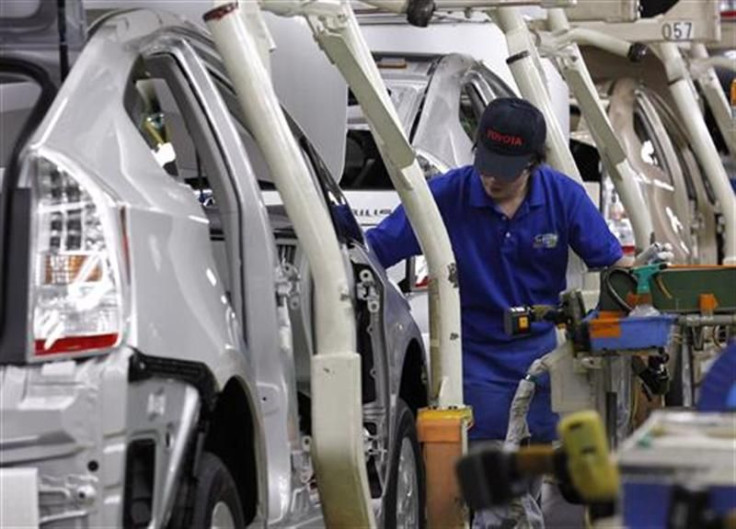How Trump's War On Foreign Companies Hammers American Workers

The Trump administration recently threatened to impose tariffs on global automakers in order to help "American-owned" companies. That phrase, which was repeated more than a dozen times in the president's proclamation, reverberated in boardrooms around the globe.
Thousands of foreign-headquartered firms -- many of them household names -- have cumulatively invested more than $4 trillion into U.S. factories, offices, and workers. These firms employ millions of Americans who produce everything from refrigerators and the ice cream inside them to school buses and healthy school lunches.
If the White House discourages future investments from these international companies, it will pinch every sector of our economy and deliver a serious blow to American manufacturing.
Millions of Americans earn their livelihoods from companies headquartered abroad. Those firms created 62 percent of all new U.S. manufacturing jobs over the past five years. They employ more than seven million Americans and provide one-in-five U.S. manufacturing jobs. The typical American worker at a foreign-headquartered company earns $81,200 each year, about 26 percent more than the average private-sector job.
Last year alone, international companies pumped $252 billion into our economy by hiring workers and building new plants and facilities. That's a considerable amount of "foreign direct investment" -- but it's down from the $277 billion they invested in 2017 and the $472 billion in 2016.
This recent decline in foreign direct investment is particularly concerning because foreign-headquartered companies spend billions on U.S. research and development. Foreign-owned auto manufacturers, for instance, have R&D facilities in 16 states. Georgetown, Kentucky, is home to Toyota's largest manufacturing plant in the world. Spartanburg, South Carolina, is home to BMW's largest.
By invoking U.S. national security to potentially discriminate against major U.S. employers simply because they're headquartered abroad, the White House is sending a message to workers in Georgetown, Spartanburg, and other communities around the country: Your job is not a presidential priority. The message to those working outside of the auto sector is that their industry could very well be next.
Ironically, global auto manufacturers have led the way in hiring the military heroes who defended our nation's interests. Daimler, the maker of Mercedes-Benz, offers veterans free apprenticeships through the U.S. Department of Veterans Affairs (VA) to become certified technicians at its U.S. dealerships. Other companies like Jaguar Land Rover have similar programs.
The auto sector isn't an anomaly -- some of America's best corporate citizens are globally-headquartered companies with major operations in the United States. Amsterdam-based electronics giant Philips recently partnered with the VA to help over 3,000 military and veteran caregivers in more than 120 U.S. cities. By showing families how to use telehealth technology, Philips helped veterans and their caregivers communicate with doctors and access healthcare information instantly.
If Washington continues to favor "American-owned" companies over international firms that deliberately decided to build products and services in the United States, we shouldn't be surprised when investment capital is diverted to countries that welcome high-quality jobs.
Thankfully, the administration has an opportunity to clear up the confusion. Last week, the administration hosted its third SelectUSA Investment Summit, bringing together thousands of international business leaders with hundreds of local economic developers from around the country. The summit leaders made the best case for why international companies should invest in the United States. Now is the perfect time for the administration to follow suit and send an unambiguous welcome message to international companies.
A presidential proclamation reaffirming America's commitment to providing a fair and non-discriminatory environment for all U.S. employers, regardless of where they are headquartered, would provide much-needed clarity to business leaders questioning whether to invest or reinvest in the United States.
International companies are good employers and support America's heroes. It's high time that Washington recognize the benefits that foreign direct investment provides our economy and workforce.
Nancy McLernon is the president and CEO of the Organization for International Investment.
© Copyright IBTimes 2024. All rights reserved.





















